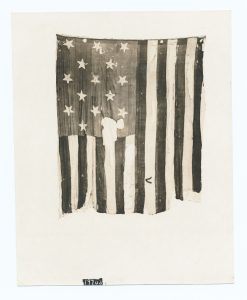Alex Carp in the New York Review of Books:
 What was America? The question is nearly as old as the republic itself. In 1789, the year George Washington began his first term, the South Carolina doctor and statesman David Ramsay set out to understand the new nation by looking to its short past. America’s histories at the time were local, stories of states or scattered tales of colonial lore; nations were tied together by bloodline, or religion, or ancestral soil. “The Americans knew but little of one another,” Ramsay wrote, delivering an accounting that both presented his contemporaries as a single people, despite their differences, and tossed aside the assumptions of what would be needed to hold them together. “When the war began, the Americans were a mass of husbandmen, merchants, mechanics and fishermen; but the necessities of the country gave a spring to the active powers of the inhabitants, and set them on thinking, speaking and acting in a line far beyond that to which they had been accustomed.” The Constitution had just been ratified at the time of Ramsay’s writing, the first system of national government submitted to its people for approval. “A vast expansion of the human mind speedily followed,” he wrote. It hashed out the nation as a set of principles. America was an idea. America was an argument.
What was America? The question is nearly as old as the republic itself. In 1789, the year George Washington began his first term, the South Carolina doctor and statesman David Ramsay set out to understand the new nation by looking to its short past. America’s histories at the time were local, stories of states or scattered tales of colonial lore; nations were tied together by bloodline, or religion, or ancestral soil. “The Americans knew but little of one another,” Ramsay wrote, delivering an accounting that both presented his contemporaries as a single people, despite their differences, and tossed aside the assumptions of what would be needed to hold them together. “When the war began, the Americans were a mass of husbandmen, merchants, mechanics and fishermen; but the necessities of the country gave a spring to the active powers of the inhabitants, and set them on thinking, speaking and acting in a line far beyond that to which they had been accustomed.” The Constitution had just been ratified at the time of Ramsay’s writing, the first system of national government submitted to its people for approval. “A vast expansion of the human mind speedily followed,” he wrote. It hashed out the nation as a set of principles. America was an idea. America was an argument.
The question has animated American history ever since. “For the last half century,” the historian and essayist Jill Lepore told an interviewer in 2011, academic historians have been trying “to write an integrated history of the United States, a history both black and white, a history that weaves together political history and social history, the history of presidents and the history of slavery.” Over the same period, a generation of Americans have had their imaginations narrowed, on one side by populist myths blind to the evidence of the past, and on the other by academic histories blind to the power of stories. Why, at a time when facts are more accessible than at any other point in human history, have they failed to provide us with a more broadly shared sense of objective truth?
More here.
